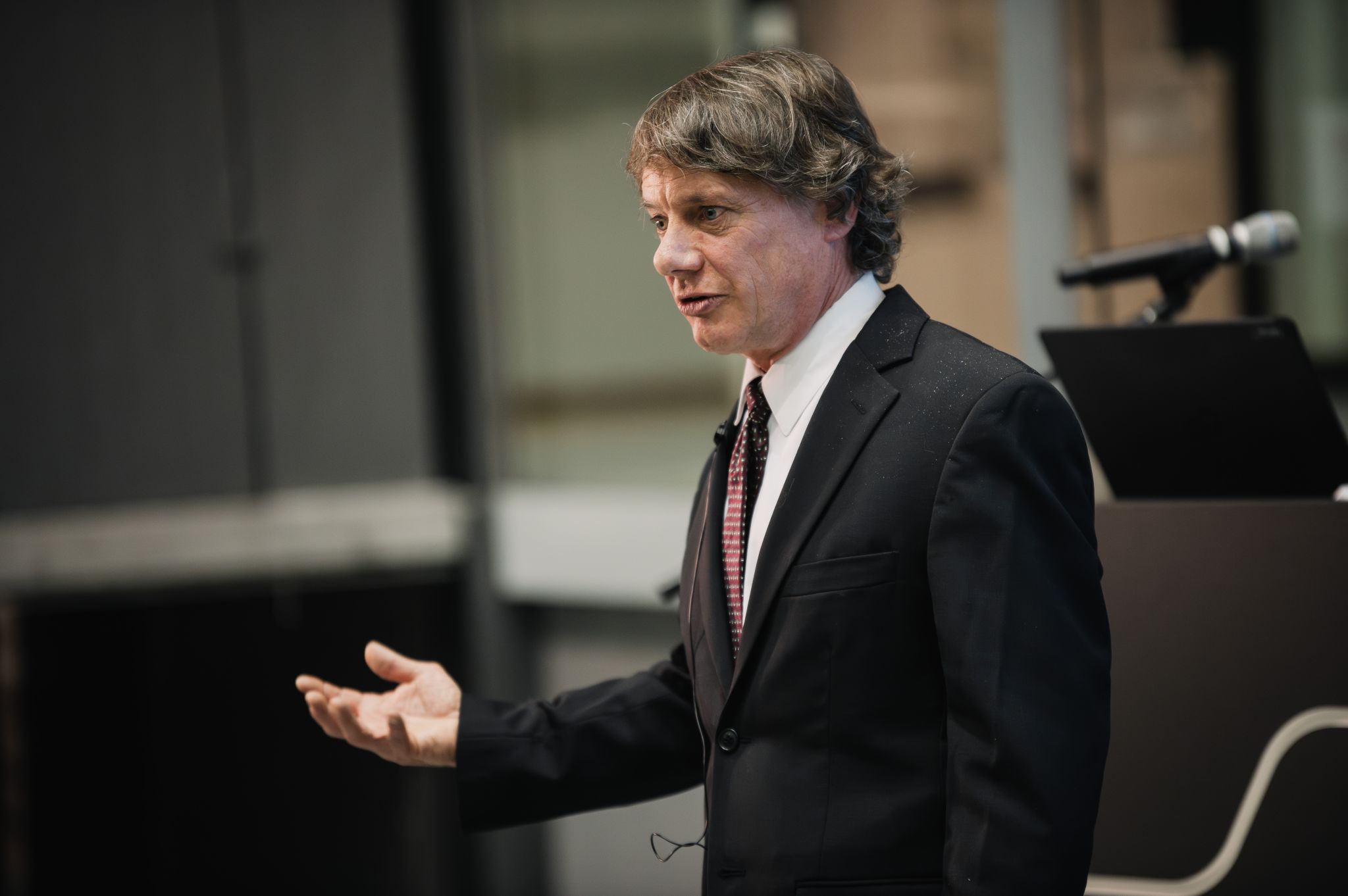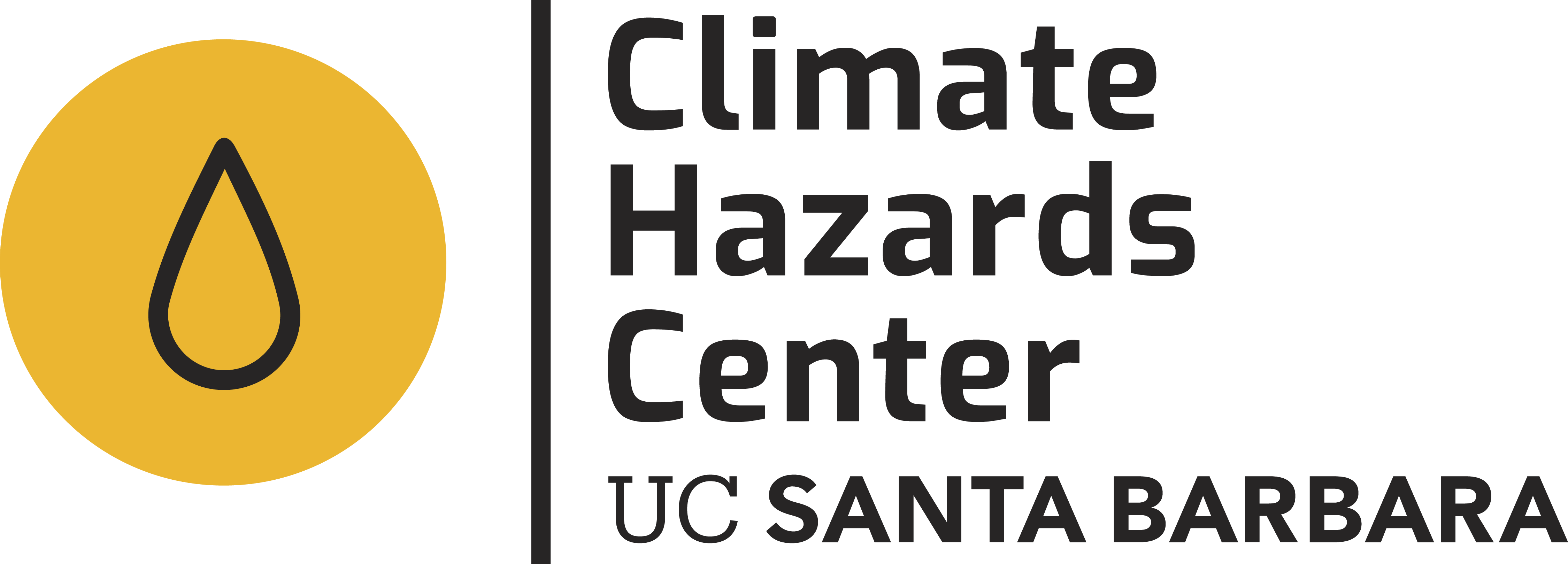
The UC Santa Barbara Climate Hazards Center’s Research Director and Climatologist, Dr. Chris Funk, is honored to speak at the International Excellence Talks on May 14, 2025 at the Karlsruhe Institute of Technology (KIT). The International Excellence Talks brings together renowned scientists to share insights on their research and network with the scientific community.
In 2024, Dr. Chris Funk was awarded the “International Excellence Award of KIT” and the “Fellowship of the SCHROFF Foundation.” These competitive awards recognize the global impacts of Dr. Funk’s outstanding interdisciplinary research on climate variability, extreme weather, and food security.
“I’m grateful for the recognition of the work that my colleagues and I do at the Climate Hazards Center,” said Dr. Funk. “Through science, climate services and key partnerships, we are able to help collaborators safeguard millions of lives every year from hunger and starvation.”
As part of the International Excellence Award, Funk received an invitation for a six-month research stay at KIT in 2025, up to EUR 50,000 for equipment for a research project to be conducted at the host institution at KIT, and funding for collaborating researchers from Africa to travel to Karlsruhe to work at one of Germany’s premier scientific institutions.
“This is an exciting opportunity to continue research collaborations between the CHC and KIT’s institute of Meteorology and Climate Research,” said Dr. Funk. “The research we do together benefits from our high resolution datasets, expertise on seasonal climate prediction in Africa, and KIT’s expertise on Africa’s weather systems. Our goal is to enhance our understanding of the drivers of climate extremes and by working with African Meteorology Agencies, improve their floods and drought early warning systems.”
During his research stay at KIT, Dr. Funk will be joined by Mary Kilavi and Fredrick Sedah, collaborators from the Kenya Meteorological Department. Chris, Mary and Fredrick will work with Professors Andreas Fink and Joerg Helmschrot from KIT, as well as the esteemed Professor Sharon Nicholson, from the Florida State University.
From Shields to Plowshares:
In this Video, take a peek at the 2024 award ceremony at KIT and watch Dr. Funk’s talk on how research by CHC and KIT is helping build climate resilience in local communities in Africa.
International Excellence Talk: CHC Presentation
- May 14, 2025 at 9AM (EST): From principle to practice - how global science can be linked to local action to safeguard lives and livelihoods in Africa
- Speaker: Dr. Chris Funk
- Venue: KIT Campus South, Building 30.41 (Chemistry Building), Lecture Hall 2 or Zoom
Abstract:
In our modern world, so filled with distraction, it can be easy to forget the value of principles. Some simple ethical principles – like being kind to each other and helping those most in need – have laid the foundation of civilization. Some simple physical principles – like how warmer air holds more water vapor – help lay the foundation for climate hazard forecasting in a warming world. In our applied climate research, we have found that connecting these principles informs effective early warning systems. These systems take advantage of global scientific resources to inform local life-saving anticipatory actions. This is what we will talk about in this presentation.
From first principles, we can expect that tropical rainfall events in a warming world will become more intense. Yet, relatively few people appreciate how this process can intensify the impacts of large-scale climate variations. Over the past decade, frequent El Niño, La Niña and Indian Ocean Dipole events have produced extreme weather in eastern and southern Africa. Collaborators in the US, Europe and East Africa have been studying how climate change amplifies the strength of these teleconnections. We have also been combining these insights with the power of global climate models. This allows us to predict many extreme wet and dry rainy seasons. We can also integrate these forecasts with global satellite observations, thereby producing best-in-science agricultural outlooks.
But the most exciting part of the story comes in the last mile, when local meteorologists, agricultural experts, and media outreach developers craft advisories that can potentially reach millions of farmers. Stretching across countries, academic disciplines, and social groups, these information streams connect us, providing those in need with critical opportunities to adapt, manage weather risks, and be more successful. While many technical and societal challenges remain, these partnerships provide important examples of how science can contribute to society.
